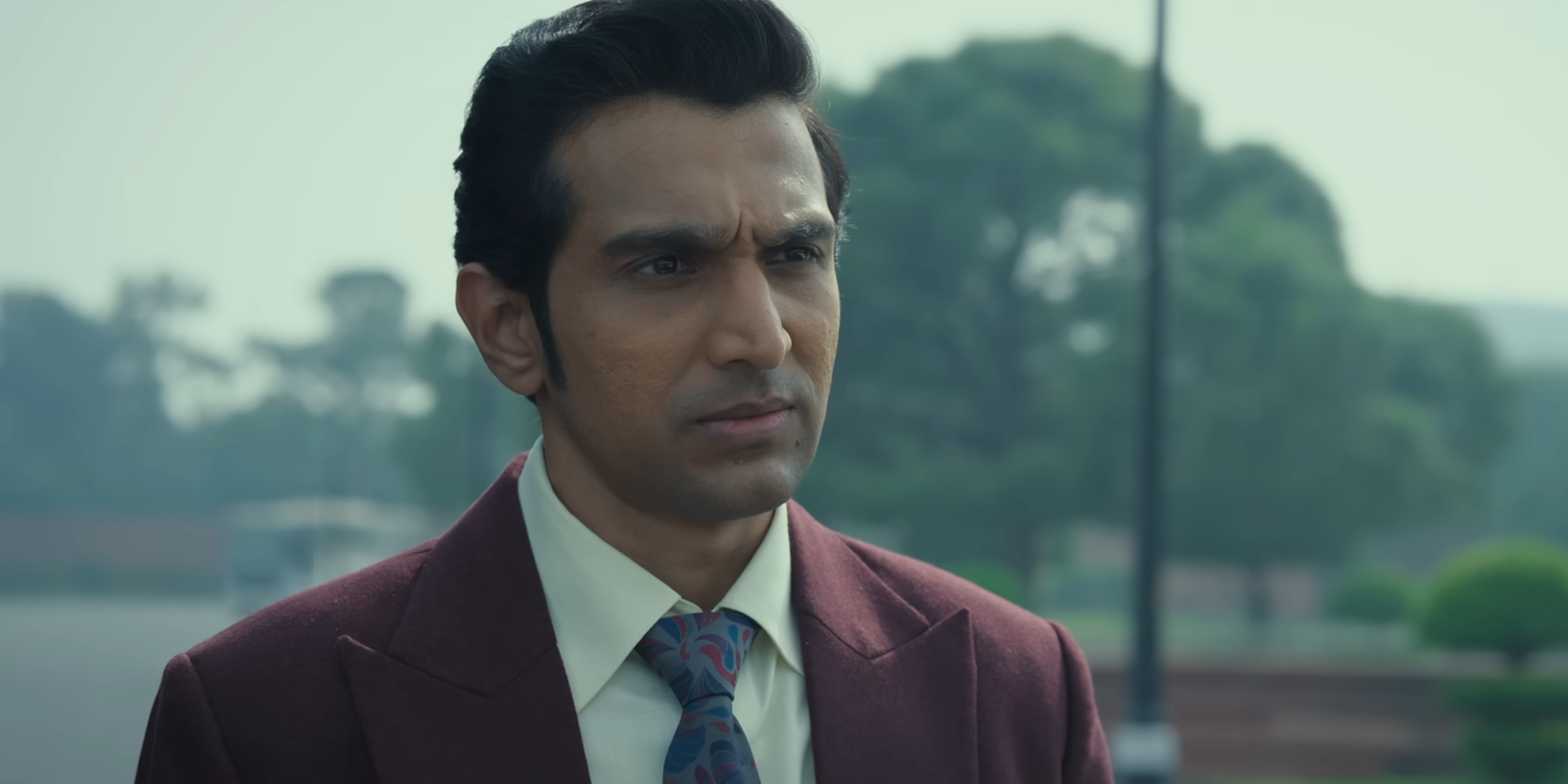Created by Gaurav Shukla, Netflix’s ‘Saare Jahan Se Accha’ is a tense tale of spycraft narrated through the perspective of an Indian Research and Analysis Wing (R&AW or RAW) spy named Vishnu Shankar, who is sent deep into enemy territory to gather Intel on a potential nuclear program that could spell doom for the region. The political drama series examines the intricacies of the shadow world of spies and the challenges they face while striving for national interests.
Set in the volatile era of the 1970s between India and Pakistan, it highlights the nuclear tensions between the two South Asian neighbors. It explores the themes of patriotism, deception, identity, intelligence, and courage. The heart of the story lies in the portrayal of an Indian spy who must balance family and nation, while also dealing with an equally motivated counterpart. The series essentially narrates a complex tale of relationships and actions that are motivated by invisible strategic-political forces.
Saare Jahan Se Accha Reflects a Tense Era in Bilateral Relations Between India and Pakistan
Though ‘Saare Jahan Se Accha’ is a fictional tale, it is firmly grounded in an era that was known to be a time of mistrust, tensions, and dangerous diplomatic maneuvering between India and Pakistan. The writing team, which includes Abhijeet Khuman, Kunal Kushwaha, Bhavesh Mandalia, Ishraq Shah, Shivam Shankar, Gaurav Shukla, and Meghna Srivastava, based the script on their understanding of geopolitical history and the complexities of bilateral diplomacy. In reality, the two South Asian states were pushed towards nuclear programs by the happenings of the Cold War between the US and the Soviet Union.

The 1970s were a particularly sensitive decade as it marked India’s first nuclear test in 1974, codenamed “Smiling Buddha,” officially known as “Pokhran-I.” The test was carried out under the leadership of Indira Gandhi, the then Prime Minister of India. It was a result of years of doubt and strategic calculations between the two South Asian neighbors. The series reflects the reality of the time through its portrayal of the effort by the intelligence agencies to outsmart each other and gain an upper hand in the pursuit of nuclear power. The showcasing of R&AW and ISI in the series represents reality closely, as both agencies were known for their efforts to infiltrate each other’s inner circles, especially during the decade the show is set in.
The series picks up when Indian officials get clues about a potential improvement in Pakistan’s chances of acquiring nuclear capability. Vishnu Shankar is sent across the border to gather specific information about the same. The two countries also represent a very unique case in nuclear politics because of their geographical proximity. The show also offers commentary on the involvement of the two superpowers of the time, the United States and the Soviet Union, who were battling for ideological and economic superiority. Their involvement in the game between India and Pakistan also finds a nuanced portrayal in the series. Ultimately, the Netflix series is an entertaining story that takes inspiration from real-life intelligence agencies, events, and decisions that shaped the relationship between the two neighbors.
The Series is a Tribute to Unsung Heroes Who Worked in the Shadows of Spycraft
The nucleus of the show is its chronicling of the tussle between two dedicated men. Vishnu Shankar and Murtaza Mallik try to outsmart each other while exhibiting utmost commitment to their respective agencies and countries. Sent beyond the border, the protagonist journeys through the unforgiving world of spycraft in enemy territory, while also maintaining his cover, his sanity, and the safety of his close ones. Speaking to Netflix, Pratik Gandhi, who plays Vishnu in the series, stated, “There’s no room for error in Vishnu’s world. Every move is calculated, every emotion buried. What drew me in was the intensity beneath the stillness and the emotional toll of being invisible, yet fighting for India.” This statement is a somber reflection on the world of spies, especially their reality, which often remains underappreciated and misunderstood.

The case of Ravinder Kaushik, referred to by his codename “The Black Tiger,” is a prominent example in this case. The heroic and later tragic tale of the spy finds representation in the series through Vishnu’s character arc. In reality, Kaushik was recruited by R&AW when he was just 23 years old. His exploits in Pakistan are still recognized as being a symbol of courage. He was sent to the neighboring county to pursue dangerous missions. He adopted the alias “Nabi Ahmed Shakir” to live his life in Pakistan. The spy managed to become an officer in the Pakistani Army while also starting a family using his made-up identity.
In the late 1970s and the early 1980s, Kaushik reportedly sent several pieces of important intelligence to his home country, which eventually turned out to be strategically significant. However, the accomplished spy was subject to life imprisonment after his identity was exposed in 1983 by a fellow agent after enduring intense interrogation. He passed away in a Pakistani prison in 2001 under tragic circumstances, away from his motherland. Vishnu’s journey in the series parallels Ravinder Kaushik, as both men strived for the interests of their homeland and deliberately risked their lives to achieve their objectives.
The Narrative is a Grounded Take on Emotional Dynamics in the Personal Lives of Spies
The emotional core of the series is in its depiction of the personal lives of spies, making it a more human experience. In an interview with The New Indian Express, Pratik Gandhi opined, “The world of Saare Jahan Se Accha felt real. It was not the story of a spy, but of a human who happened to be a spy.” The statement indicates that the series is more interested in representation, as opposed to glorification for the sake of thrills. The narrative also portrays the Pakistani side of the story through the trials and tribulations of Murtaza Mallik, played by Sunny Hinduja. The actor, in a statement to Netflix, remarked, “This isn’t a black-and-white conflict. My character Murtaza is highly disciplined, dangerous & his only mission is to serve his nation just like Vishnu.”

The series balances the perspectives of the two opposing spies, while also depicting their struggles and loyalty to their nations. In an interview with ANI, Pratik Gandhi opined that the series tries to portray reality without spicing it up, which is a view also shared by Sunny Hinduja. Pratik also added that the series looks at the personal cost of spycraft, which is mainly narrated through the experiences of Vishnu Shankar’s wife, driven by a terrific performance by Tillotama Shome.
In reality, family members of spies are often dragged into political conflicts without their consent and become entangled in secrecy and deception, which affects their personal lives. In the series, Vishnu’s marriage becomes an element of emotional turbulence as he is forced to be a family man to fit into his role as a spy. However, his wife is caught in a bilateral conflict without her knowledge. The struggles of the relatives of spies are an often underrepresented aspect of spycraft, which finds a poignant representation in the Netflix series.
Read More: Is Zero Day a True Story?


You must be logged in to post a comment.